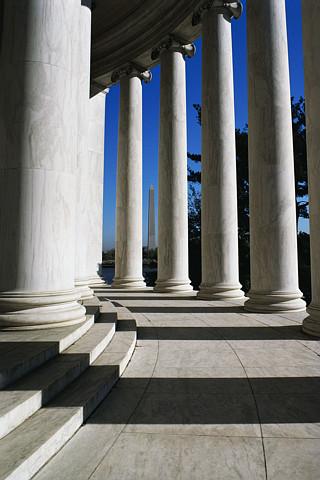EB-1B Visa: Outstanding Researcher or Professor
An Outstanding Researcher or Professor, or EB-1B, classification applies to aliens who are internationally recognized as exceptional in a particular scientific or scholarly field. Unlike self-petitioned EB-1A visas, EB-1B visas are employer-sponsored. An employer petitions on behalf of an alien, demonstrating that the alien has secured a permanent job offer with the employer and that the alien will continue his or her demonstrably “outstanding” abilities as a researcher or professor in that capacity. Simply put, the employer is the petitioner and the alien is the beneficiary for EB-1Bs.
Who Qualifies?
Aliens residing in the U.S. or abroad are eligible to apply for this designation, provided they meet three general qualifications stipulated by U.S. Citizenship and Immigration Services (USCIS):
-
International recognition for outstanding achievements in a particular academic field.
-
At least three years of relevant research or teaching experience in that particular academic field.
- Note that research or teaching experience accrued while in pursuit of an advanced degree, such as a Ph.D., can be counted toward this requirement, but only in three scenarios: the alien had already acquired the degree; the teaching duties were such that the alien had full responsibility for the class taught; or the research conducted toward the degree was recognized within the academic field as outstanding.
- Aliens must document their work history with letters from current and former employers describing work duties and duration of employment.
-
A job offer for a permanent research position or a tenured or tenure-track teaching position from the sponsoring employer.
- Generally, the job offer is given by a university or academic or scientific institution, but it can also be offered by a private employer. If the offer is from a private employer, the employer must have at least three full-time researchers on its workforce. Additionally, the employer must supply documentation speaking to its own research accomplishments and standing in the relevant academic or research field.
What’s a Permanent Job Offer?
A permanent job offer is one in which an employee has a reasonable expectation of future employment. As a general rule, all job offers are considered permanent job offers, with the exception of contract positions that specify a particular duration of employment. Part-time jobs are considered permanent job offers, provided there is no fixed termination date.
For more information on EB-1B job offer specifications, click here. For a sample job offer letter, click here.
Process
As with all employment-based, first-preference petitions, EB-1B petitions do not require a labor certification. However, the person seeking permanent resident status on the basis of an EB-1B classification must have secured the requisite job offer with the sponsoring employer filing the petition on the alien's behalf.
In sum, EB-1B petitioners must include documentation supporting at least two of the following six criteria:
-
Evidence of receipt of major prizes or awards for outstanding achievement
-
Evidence of membership in associations that require their members to demonstrate outstanding achievements
-
Evidence of published material in professional publications written by others about the alien's work (i.e. more than merely citing the alien’s work)
-
Evidence of participation, either on a panel or individually, as a judge of the work of others in the same or in an allied academic field
-
Evidence of original scientific or scholarly contributions in the field
-
Evidence of authorship of scholarly books or articles in academic or scholarly journals with international circulations in the field
Procedurally, the EB-1B is filed by an employer with Form I-140, Petition for Alien Worker.
Case Studies
Let’s consider realistic examples of EB-1B petitions to illustrate the above.
Outstanding Professor
Background
Dr. Fati Buhari is an ethnomusicologist whose specialty is West African music and its influence in international culture. She has been offered a tenure-track teaching position as an Associate Professor of African Studies at Harvard University. Dr. Buhari has been recognized internationally by The Society for Ethnomusicology for her development of a holistic model to study global music, which she has described in numerous articles published in such journals as the Journal of Musical Arts in Africa. For the past six years, Dr. Buhari has held an endowed professorship at the University of Ghana, where she teaches music theory and region-specific ethnomusicology.
Would Dr. Buhari qualify for an EB-1B visa?
Yes, and she would present an objectively compelling case to USCIS. As indicated by her brief biography, Dr. Buhari has garnered international recognition in her academic field, has more than twice the requisite number of years of relevant teaching experience, and has been offered a tenure-track professorship at Harvard.
Outstanding Researcher
Background
For more than a decade, Dr. Thérèse Domel has been working as a researcher in the field of biomedicine at L'Université Paris-Sud, from which she graduated with dual M.D./Ph.D. degrees. Dr. Domel’s work has attracted the attention of biomedical companies and academic departments at universities alike, particularly for her research on the use of antibiotics to disrupt the formation of negative associations in the brain. She has authored two dozen journal papers, which have been published in the Journal of Biomedical Science and The Lancet. In 2012, Dr. Domel was the recipient of a Hartwell Foundation individual research award, and recently, the newly established Dell Medical School at the University of Texas at Austin offered Dr. Domel a permanent position as a Research Affiliate Postdoctoral Fellow.
Would Dr. Domel qualify for an EB-1B visa?
Yes. Dr. Domel checks all the boxes needed to qualify as an Outstanding Researcher. As indicated above, Dr. Domel has accrued much more than the requisite three years of relevant research experience, has been offered a permanent research position, and because of her hard work enjoys a sterling reputation in her competitive field.
For more information on the EB-1B visa, refer to the following links:
- EB-1B Visas
- EB-1B Requirements
- EB-1B Services We Provide
- USCIS Definition of "Permanent Employment"
- Sample Job Offer Letter
- Frequently Asked Questions about EB-1B Visas
- EB-1A vs. EB-1B
- Attorney's Fees
Our experienced immigration attorneys are here to assist you in your EB-1 application. For more detailed information on the EB-1 category, including minimum requirements and USCIS policies, refer to the following links:
Updated 04/05/2017




